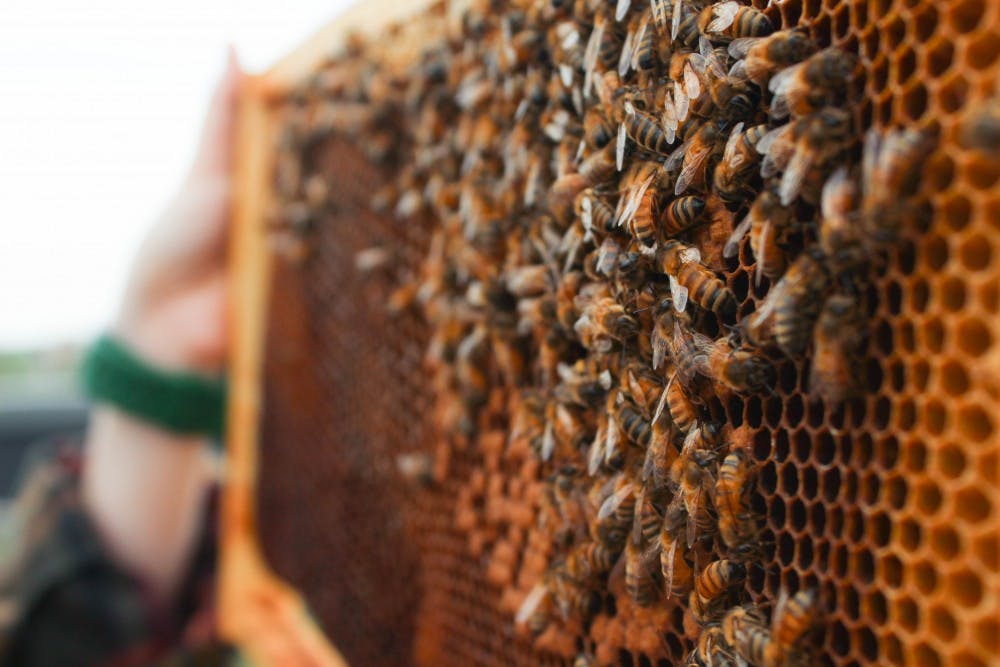Spring has sprung at UNC – the flowers are blooming, the sun is shining and, thanks to the hard work of various sustainability organizations on campus, the bees are buzzing too.
This spring, UNC was named a Bee Campus USA affiliate due to the efforts of several organizations including the Carolina Beekeeping Club, UNC's Three Zeros Environmental Initiative and Edible Campus. It is one of 68 college campuses recognized by the Xerces Society for Invertebrate Conservation, a science-based nonprofit organization that works to conserve and protect invertebrates and their habitats, as an environment that implements programs to “raise awareness, expand habitat, and celebrate gains for pollinators,” according to the society’s website.
Bryn Walker is a rising junior and chairperson of the UNC Bee Campus USA Committee. She said the affiliation is beneficial not just for bees, but for all pollinators, which the USDA Forest Service defines as animals that assist plants in their reproduction.
“Even though it’s called a Bee Campus USA certification, it’s really about getting the affiliate to dedicate themselves to providing habitat and education about pollinators in general, not just bees,” Walker said. “... It’s important for UNC because it’s a different aspect of sustainability that a lot people don’t focus on.”
UNC Director of Energy Services Lew Kellogg said in a statement to the Daily Tar Heel that the campus has made pollinator gardens at Edible Campus locations, the North Carolina Botanical Garden and on the green roof at the FedEx Global Education Center.
The Three Zeros Environmental Initiative, launched in 2016 to help make UNC a more sustainable campus, is sponsoring hives and a pollinator garden to be built at the new solar and storage location, Kellogg said.
“Universities and colleges have a substantial impact on the environment as well as the knowledge and resources, like research programs, to implement change,” he said. “We are also responsible for educating the next generation, so we have a responsibility to show students how to be good stewards of the environment. Without action on behalf of the institutions, we cannot effectively educate others.”
Nissa Coit, the current president and founder of Carolina Beekeeping Club said that at UNC, the Bee Campus affiliates are making UNC’s campus more susmtainable by helping pollinators of all types.
“We’ve promised to create a pollinator-friendly habitat by having no-mow zones and pollinator gardens and changing the pesticides that we use to have them be more friendly to bees,” Coit said.



